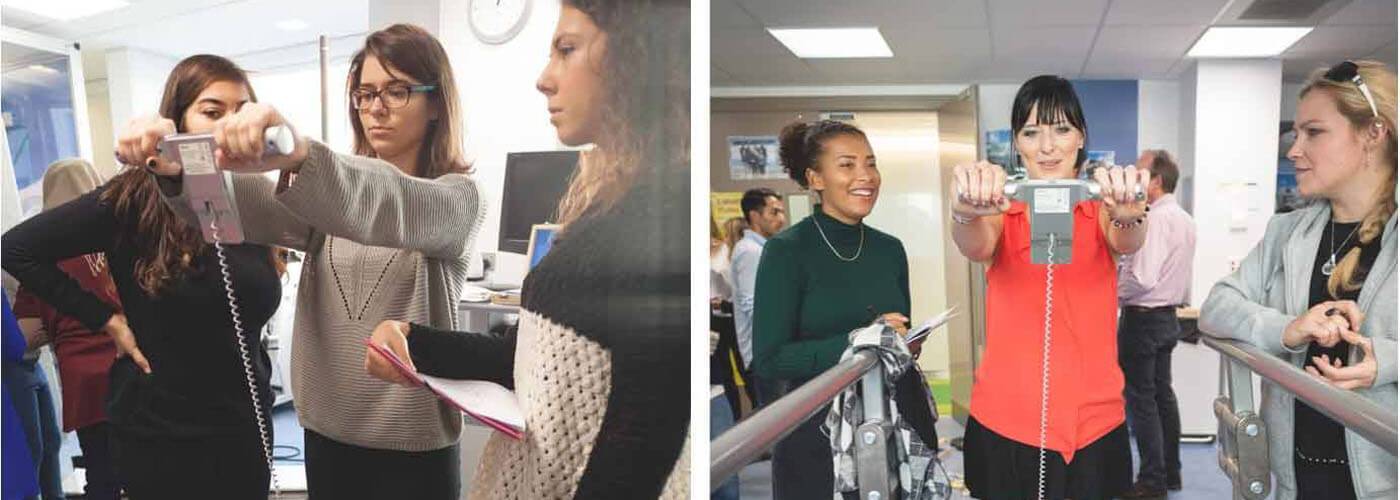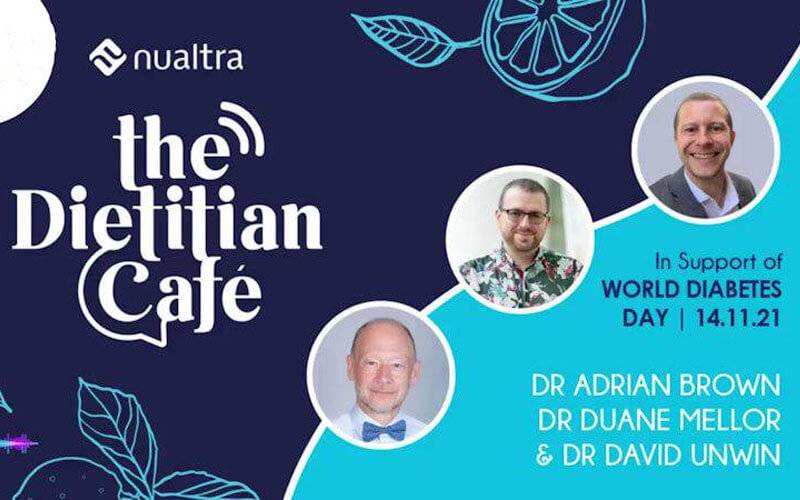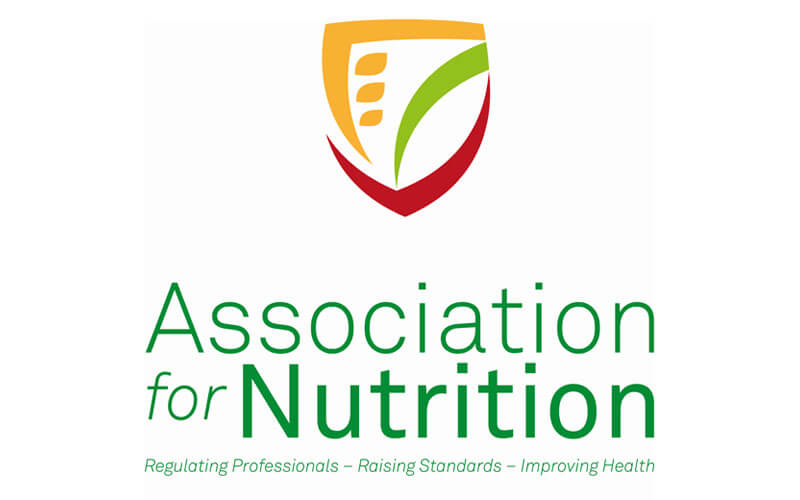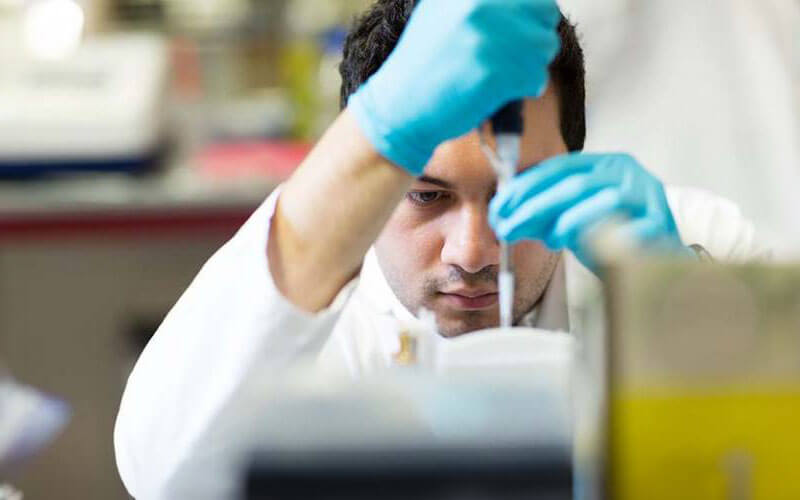Nutrition and Dietetics degrees
Undergraduate Virtual Open Day
Join a Virtual Open Day to find out more about our programmes and get the chance to ask your questions in a live session. Book your place today.

Our programmes
Join UCL's world-leading academic community working on obesity, child health, epidemiology, and the psychiatry of disordered eating. Our courses explore the biomedical and societal effects of the food we eat, the benefits of good diet, and the worldwide impact of unhealthy eating. Benefit from an extensive range of scientific, clinical, and educational expertise and access to world-class training, facilities, and equipment.
Nutrition and Medical Sciences, BSc
Explore nutrition at all stages of life, from cellular, whole body and global public health perspectives, on this three-year, full-time BSc degree.
- Full-time, 3 years.
- Subjects: Nutrition and Dietetics
Clinical & Public Health Nutrition, MSc / PG Dip
This master's degree focuses on over- and under-nutrition, which apply to most developed nations as well as those undergoing rapid transformation.
- Full-time, 1 year.
- Subjects: Nutrition and Dietetics
Dietetics, MSc (Pre-registration)
Our two-year MSc Dietetics combines academic knowledge with practice to help you become a competent, passionate, autonomous dietitian.
- Full-time, 21 months.
- Subjects: Nutrition and Dietetics
Eating Disorders and Clinical Nutrition, MSc / PG Dip / PG Cert
This is the only graduate programme available in eating disorders. It is for professionals wishing to work in the eating disorders field at a high level.
- Full-time, 1 year. Part-time, 2 years.
- Subjects: Nutrition and Dietetics
Obesity and Clinical Nutrition, MSc
Explore the latest evidence on treating obesity, combining state-of-the-art research, new technologies, and real-life treatment through clinical visits.
- Full-time, 1 year. Part-time, 2 years.
- Subjects: Nutrition and Dietetics

Why study Nutrition and Dietetics at UCL?
Nutrition is an important concern with global consequences. At UCL, you can learn from leading academics in the field and focus on real-life clinical case studies. Our courses contain specialist modules in a variety of areas, from human biology and nutritional science to the psychiatry of eating disorders. Find out more about studying nutrition in the heart of London.
"Help people go in the right direction"
Shahana studied the MSc in Clinical and Public Health Nutrition in London at UCL. She was a major supporter of both healthy eating and exercise and even developed her own blog while she worked on her master's degree. Follow her story and why she would recommend the course at UCL.
Careers
Our nutrition courses will equip you with a real advantage when entering a competitive careers market. Graduates are eligible for a wide range of UK and international career opportunities and are well-equipped for further studies such as a PhD.
Depending which programme you choose, you will be able to pursue a career as a nutritionist in the health services of the UK and other countries, in the clinical nutrition or pharmaceutical industries.
Students who are health professionals can apply for relevant clinical and research positions at a senior level. We address the needs of professionals working in clinical services in the field of eating disorders and elsewhere.
“I made a very sudden decision to study nutrition instead of medicine, partly due to the huge amount of misinformation I was seeing online around nutrition and health.
I chose UCL because of its academic reputation and thoroughly enjoyed the course. Without the MSc I would not be working as a nutritionist now, with my own private practice.
The presentation skills also paid off as I now do more media work, both TV and radio, as a nutrition expert, as well as science communication through social media and publishing a book.
Pixie Turner, Registered Associate Nutritionist.

Our research in Nutrition and Dietetics
As a global leader in nutrition research, UCL examines the incidence and associated problems on a worldwide scale of nutrition-related epidemiology, child health, overnutrition, undernutrition and the psychology behind disordered eating. We publish in high-ranking journals and regularly appear on TV and radio to discuss vital topics around nutrition, diet and health.

Discussing diabetes remission on The Dietitian Café
Dr Adrian Brown joins co-authors on the Dietitian Café podcast to discuss their new landmark review exploring dietary strategies for the remission of type 2 diabetes.

Academic follows ultra-processed diet for documentary
Dr Chris Van Tulleken featured in a 2021 BBC One documentary, 'What are we feeding our kids?'. He ate ultra-processed food for one month, to highlight the harm it causes the body and brain.
Our teaching leads





Prof. Paul Robinson

 Close
Close











